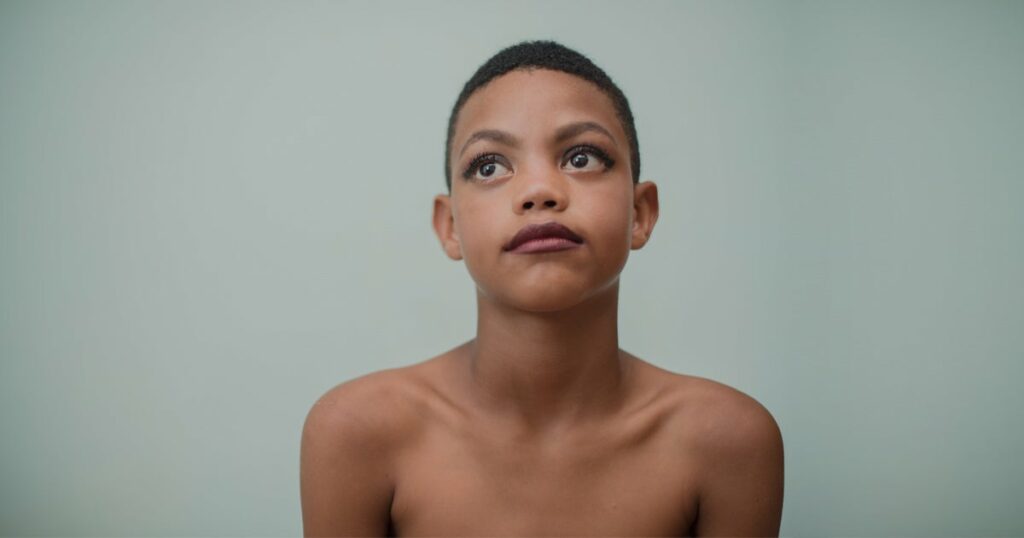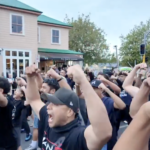Blog Post
How the transgender movement is coming for your kids
Plenty of people think that those of us consistently highlighting the LGBT movement’s ongoing colonization of childhood are a little paranoid. I like to post weekly reminders of why, unfortunately, we are not. Rod Dreher of The American Conservative posted a letter he received from one of his readers. If you’re skeptical that things are as bad as we say they are, please give it a read:
I’m writing to you today because I have some information to share with you (and your readers) who may still be skeptical that this LGBTQIA+ gender-identity craze is coming for their kids. Some recent interactions online have made me more aware than ever that the movement is spreading in wild and unpredictable ways, and also made me reflect on how, in my own life, even someone like me could have fallen victim to it.
I want to start off by saying that recently, (and ironically, in an attempt to try not to be sucked into the internet as purely a source for doom and gloom: you will see how this backfires on me) I decided to rejoin a fan community surrounding one of my favorite franchises on Twitter. I won’t go into too much detail about which community and the exact specifics, but just know that it’s a popular franchise that’s appropriate for older kids, teens and adults (nothing 18+, nothing for really little ones). As a teen myself I was fairly active in a similar branch of this community on another social media platform (Facebook), and enjoyed it immensely before the platform eventually went more or less defunct as a hot-spot for fan content. Most of the content was fan-created work (like fan-art or fan-fiction) with a little interaction and lots of “DID YOU SEE THE LATEST” kinds of posts.
I’m not going to gloss over my entire youth and say that there was never anything in the old version of the fan community that wouldn’t have been inappropriate for me or that I could, potentially, have been harmed by if I’d been sucked into it. But I was probably around 16+ by the time I ever engaged actively online, and was well aware of things to watch out for and when to close the tab, so to speak. But largely, what I will say is that I got what I came for. I came to see other people who liked the same things I did talking about it and creating their own little spin offs to tide them over until the next big release, and it didn’t matter that some of us were teenagers and some were 25+ year olds with a long history with the franchise (by and large we didn’t know who was who, and conversations were pretty minimal anyway, and seldom personal- DMs weren’t really a thing unless you were IRL friends or had some larger connection, etc. etc.).
Anyway, to keep it to a minimum, that was then. If you’ve been on the internet any time in the last five years you know that spaces where people just talk about an interest and don’t mix it with politics and activism are becoming few and far between. Even though I knew this, and knew that I wasn’t going to have the same experience in a different place, something sparked an interest in me to go try to reconnect with my internet roots in a different setting. So, I followed some hashtags, quickly found some new followers and settled back to enjoy at least marginally some discussions online that didn’t have to do with Covid and All The Ways We Are All Going To Die.
Then came the teenagers.
Much like when I was a kid, this franchise attracts a lot of younger people. So it was hardly surprising to me to find that many of my new followers were in the 14-18 age range and that people like myself (mid-older 20s) were a sort of senior majority. That was fine- Twitter’s rules after all are 13+, so it’s not unreasonable to assume if you’re part of a popular group that you’ll interact on occasion with minors. That wasn’t the part I found strange. The part I found strange was that all of them, and I repeat, all of them were fans of two things- the franchise, and gender identities.
You can actually almost pinpoint the age range of the 18 and under crowd by how many of them have the following: 1. Pronouns in bio and in username. 2. Gender identity or lack thereof displayed in bio or username. 3. LGBTQ+ sexual orientation displayed in bio or username. etc. etc. etc. I’m not going to dive into it too much, because some might be saying “isn’t that just normal nowadays? Even politicians do that?” Well, you’re not wrong if that’s what you’re thinking. And that’s not the part that disturbs me.
What disturbed me was that, a few weeks after I joined the group, I started noticing an unsettling pattern among many of these teenage users (and many over-teen users, but I’m trying to make a point about the young ones specifically). For a few days, after an interesting bit of news or a trailer or some other thing that unites franchises, the posts in my feed would be primarily things like what I remembered from past experiences: posts about the franchises, theories, speculations, fanart, etc. But, every time things would settle back down into a quiet, normal week, the feeds in my post became almost entirely about one thing: Gender and LGBTQ talking points. I’m going to diverge for one second and say that many people in this group aren’t using a personal, front-facing account for their interactions in this fan-group. They’re mostly using alt-accounts with no real names and faces attached (myself included). And yet, every time the discussion in the feeds died down to where there was just no new stuff about the franchise to talk about, all the conversation slowly but surely shifted back to sexual orientation and gender. From fan-ships of perfect LGB couples to ‘hey I drew this person but as a trans-female!’ to even forgoing pretending to talk about their interests and just discussing their own gender and sex presentation with their other online friends, it became quickly very clear to me that A. I no longer really belonged here and B. Every single one of these kids was obsessed. Every. Single. One.
And the worst part is, not all of them are even remotely candidates for what we might call ‘prone’ to gender dysphoria or anything else. They’ve just learned it’s cool to have a gender identity, and they’re parroting everything they’re hearing everywhere else. Don’t believe me? Here’s some evidence.
I’m going to share with you, stripped down and condensed to essentials (because these are kids, after all, and I don’t want to actively showcase any of their private details) the gist of two conversations I saw on the app during some dead days. One happened a few weeks ago. The other one was within the last few days.
The first one went like this: Person A (OP) posted something along the lines of “I’ve decided to test (note the word ‘test’) if I’m gender fluid. I’d like everyone to call me (opposite sex pronouns) for a while. Immediately, many comments with affirmation and specifically addressing OP as opposite sex emerged. OP reacted with glee.
The second instance, and the one that really broke me: Person B (OP) posts repeated questions about female gender orientation. Asks what it means if they are a tomboy and if that counts as a gender presentation. Is told no. Continues (in a series of posts, that because I followed this person I saw all of) to ask more and more questions including things like ‘what if I’m comfortable being female but I like masculine things and sometimes feel drawn to masculinity? What does that mean?’ I didn’t see a whole lot of replies to this person, but today, they posted that they are now identifying as a “Demigirl” with the appropriate flag. I had to look this one up: https://gender.wikia.org/wiki/Demigirl
If you read that wikia page, you’ll learn that a ‘Demigirl’ is a female who ‘mostly’ identifies with being a woman, but not completely, and is partially gender-fluid as a result. You’ll also learn that the official ‘flag’ for this hybrid identity was scribbled out by some person on reddit only about a month ago. A month. So, less than a year ago probably someone came up with this idea, a month ago they made a flag, and less than a day ago a young girl on the internet adopted this as ‘proof’ that their slight attachment to masculine stereotypes fits them in on the gender-identity board! Praise and affirmation followed.
Still don’t think the gender craze is coming for your kids? Do your kids interact at all in fan groups? Do they talk to people online? Do they go to public school? All it takes now is a half-day of questioning to find your perfect gender flag, and you’re good to go. Forget trying to turn off their phones, if parents aren’t talking to their children right now about what sex (and gender) really are and how varied and multifaceted they can be while still existing in a binary then they might as well be handing them over to the gender-packaging factory to receive their stripes. The instant someone says “I don’t always adhere to stereotypes” a million voices are waiting to tell them which of 364000 identities they can fit into to be special and cool just like everyone else. If they don’t have a response for that, it’s over. Period.
I’m going to digress and talk about myself for a minute to explain just why these examples, particularly that last one, burn a hole in my soul. From the minute I was old enough to remember, I’ve never been one of those typically presenting females. When my sisters and I played dress-up as kids, they played princesses and I played a prince or a witch or whatever was more interesting. In addition to the dolls and barbies I had being one of three girls, I also had an assortment of boy-oriented toys, including action figures, a remote control car and this really cool nerf bow-and-arrow set that I still secretly wish had survived my playing with it because man, my kids are gonna miss out someday. My hair was short because I hated wearing it up and the solution was a bob, and when we spent time with relatives I could be found as far away from my female cousins as possible, hanging out with my male cousins and talking about Legos and Lord of The Rings. I spent 90% of my time reading books and ignoring reality, and didn’t put much effort into my appearance until probably age 13 or later.
And I wished I was a boy.
It wasn’t an all-consuming thought, but I thought it. I wished, many times, when my parents would fuss at me to please stop attempting to climb trees in your Sunday clothes and when my sisters never talked about anything but dolls and tea-parties around their friends that I could be one of the boys. I had always liked the boys and their world better, and I fit into better, and yet there was that little problem (that I was still a girl) that kept me from being accepted into the boy group. The reality was, I was already probably very intelligent for my age (too-well read children can relate) and I took that big-headedness a little too far at times. I was also a very emotional person (still am) and just passionately felt that being a girl and being expected to do girl things was hideous and unfair.
The saving grace? My mom was the same. She’s never been a typical female either, and though as adults we have some clear differences (ironically, I have more stereotypical female interests/talents than her- like a hidden passion for interior decorating and a love of baking and so on) she was there for me, to be able to tell me that no- I didn’t really want to be a boy, I was just a girl who liked sword fights and grass-stains more than ballgowns and tea parties, and that was okay!!! She was proof that there were other girls like me, and that I would find more of them eventually (I did) and, even though we never said so in so many words, that stereotypes and how we fit into them has nothing to do with our innate female and male selves. And so, reassured that I could be female and still be however I wanted, I eventually grew out of those thoughts, and as I matured, found that there were ‘female things’ I connected with that my past self was too young to appreciate.
But, think about all this in a modern context. I’m a happy adult female now, and I was never truly gender-questioning. I just thought, for a while, that boys had more fun than I did, so I wanted to be one. But that, in it of itself, is a thought that’s deep enough for modern gender activists to insist I be transitioned immediately and put on life-altering hormones, never given a chance to grow up or grow out of questioning, and affirmed in my presentation instantly! If I, like that young girl online, had been handed a ‘gender-affirming’ flag and an identity that ‘made sense’ out of why I was different from my peers, I might have jumped on it, especially without the presence of a wise older person to tell me I wasn’t anything different than what she’d been as a child. This is the problem, this is why this kind of thing is so dangerous and toxic and wrong.
I’ve gone on at long enough length, so I won’t write more here, but what I have to say is this: Again, if you are a parent in today’s era, you have to be talking to your kids about gender identities and how cult-like they are. The likelihood is that none of the parents of these kids in the fan-group I rejoined know that their kids spend most of their internet time debating which gender they are and being saturated by different identities and sexualities. When their kid comes home saying they’re now a “Demifem” and they want to be addressed as she/they, they’re going to express confusion and act like they never saw it coming. They’re going to regret not having these conversations earlier, while their kids were young enough to resist peer pressure. And their kids are going to end up messed up for life, especially the ones that end up on hormones. If we can’t start stamping this out at the roots, it’s never going to go away.








